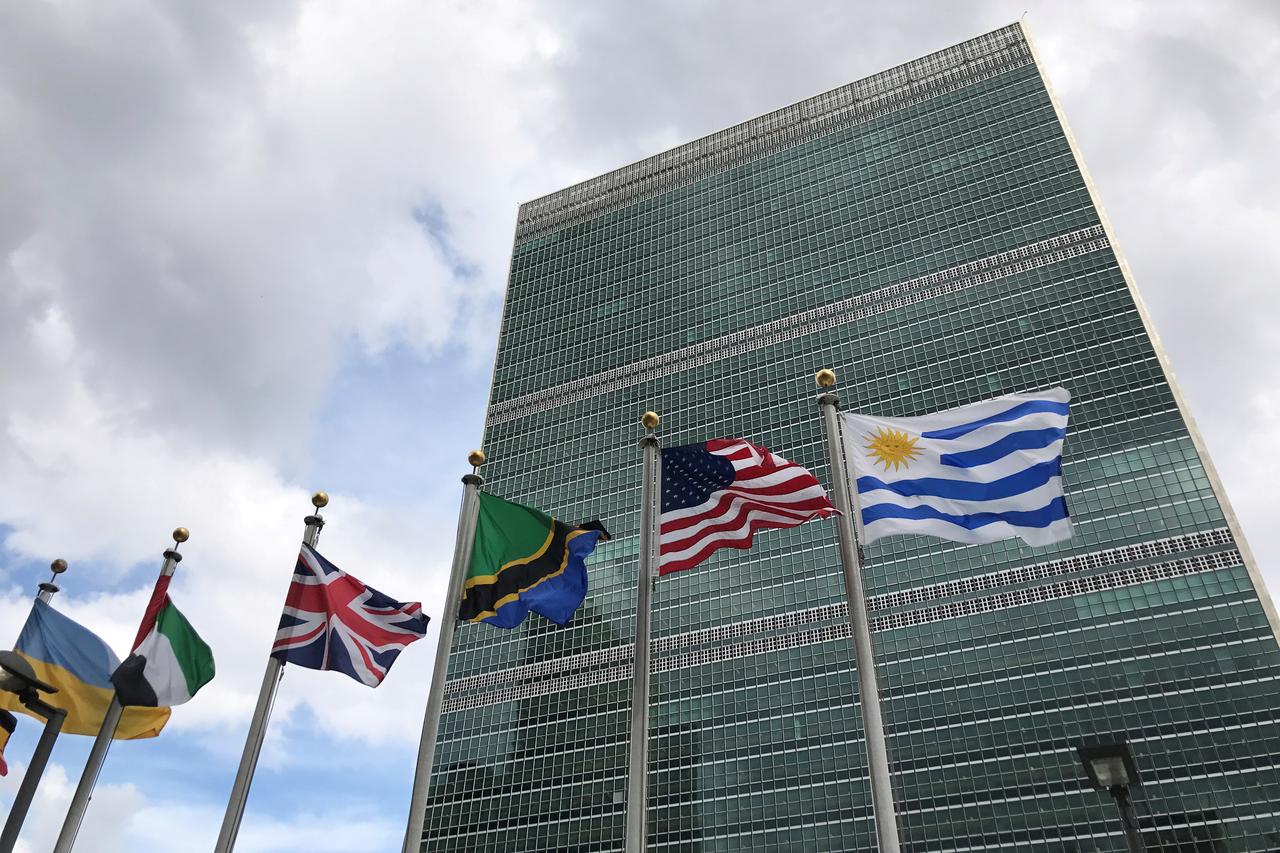Why 2020 underlines UN’s enduring relevance
https://arab.news/ry87w

The UN is making final preparations for the forthcoming September celebrations of its 75th birthday. While the international body is much criticized, this landmark anniversary shows that it continues to have significant resilience and legitimacy three-quarters of a century after its creation.
Indeed, one of the few silver linings of the coronavirus disease pandemic is that it has shown yet again how global challenges can best be tackled through coordinated international action, often led by the UN. Despite the deep decay of the post-1945 order, the remaining dense web of postwar international institutions, with the UN at its heart, continues to have major relevance. While these bodies are imperfect and in need of significant reform, they have generally enabled international prosperity and security, especially with five of the key powers on the UN Security Council.
The UN’s continuing relevance so long after 1945 underlines the wisdom of the critical mass of nations that decided, after the Second World War, to try and change the course of history by committing to work together for peace. In the decades since the signing of the UN Charter, the world body has worked unwaveringly for peace, dialogue and cooperation to promote human rights, the rule of law, and sustainable development, and against climate change. It has also played a critical role in supporting negotiated diplomatic solutions to conflicts, as well as security and stabilization through military and civilian missions.
Given the overall success of the UN, one of the many ironies of the current political era is the sea change in view of the current US administration. The UN and fellow multilateral institutions, such as the International Monetary Fund and World Bank, were key parts of the postwar settlement championed by President Harry Truman in the 1940s, which were subsequently cultivated on a bipartisan basis to bolster US global leadership. However, the Trump team is hastening the collapse of the order that was created after the allied victory over the axis powers. This surprises many across the world, given that the system has generally been so beneficial for Washington.
Donald Trump, unlike all his postwar predecessors in the White House, has disowned many of the US-led institutions and alliances, promising instead an “America First” platform. He has, for instance, begun the process of withdrawing from key UN bodies like the World Health Organization and threatened the future of the World Trade Organization.
But dismantling is one thing; building something new is another. Thus far, the administration has abjectly failed to forge any new Trump doctrine centered on his vision. Indeed, in practice, there has often been policy U-turns reflecting his ad hoc style of governing.
However, in the volatile, fast-moving landscape of the early 2020s, it is not just the vacuum of US leadership that is contributing to the uncertainty surrounding the UN and the wider erosion of the postwar settlements. For, amid this year’s coronavirus-restricted celebrations of the UN’s 75 birthday, there are growing geopolitical tensions, not least between China and America.
What makes this so worrying for the UN and other proponents of international peace and security is that these tensions come on top of layers of previous turbulence in the international landscape. The multiple challenges now confronting the US-led international order include the fact that Washington’s relations with Russia are at one of their lowest points since the collapse of Soviet communism; the continuing threat from international terrorist groups, which are reportedly looking to take advantage of the pandemic chaos; and instability in nations from Syria to Afghanistan, which are being fueled by the coronavirus.
The gravity of these and other political challenges now facing the UN and its ilk underline how little optimism there is in the international landscape right now. It is a world not just where the coronavirus pandemic threatens a regression of what some fear could be decades of humanitarian development in the developing world, but also where liberal democracy itself appears to be facing its most serious crisis in decades. Basic tenets like free and fair elections, the rule of law, minority rights, and press freedom are under what seems like growing attack — and at a time when unstable countries, including North Korea, have acquired nuclear weapons.
A fundamental driver of whether the UN will thrive, not just survive, is the direction of the relationship between the US and China.
Andrew Hammond
Going forward, a fundamental driver of whether the UN will thrive, not just survive, well into the 21st century is the direction of the relationship between the US and China — the two most powerful members of the Security Council. It seems we are now all set for a growing bilateral rivalry and what some see as a new Cold War, which could see international cooperation erode, not to mention the possible unraveling of the recent US-China trade deal and military tensions increasing from the South China Sea outwards.
However, this key relationship may still contain unexpected potential for fruitful partnership at the UN and beyond. Bilateral cooperation, which may require a change of US president, is most likely if stronger partnerships can be embedded on issues like climate change, as was the case during the Obama presidency. This could then enable more effective ways to resolve hard power disputes, from trade to military tensions.
- Andrew Hammond is an Associate at LSE IDEAS at the London School of Economics.










































